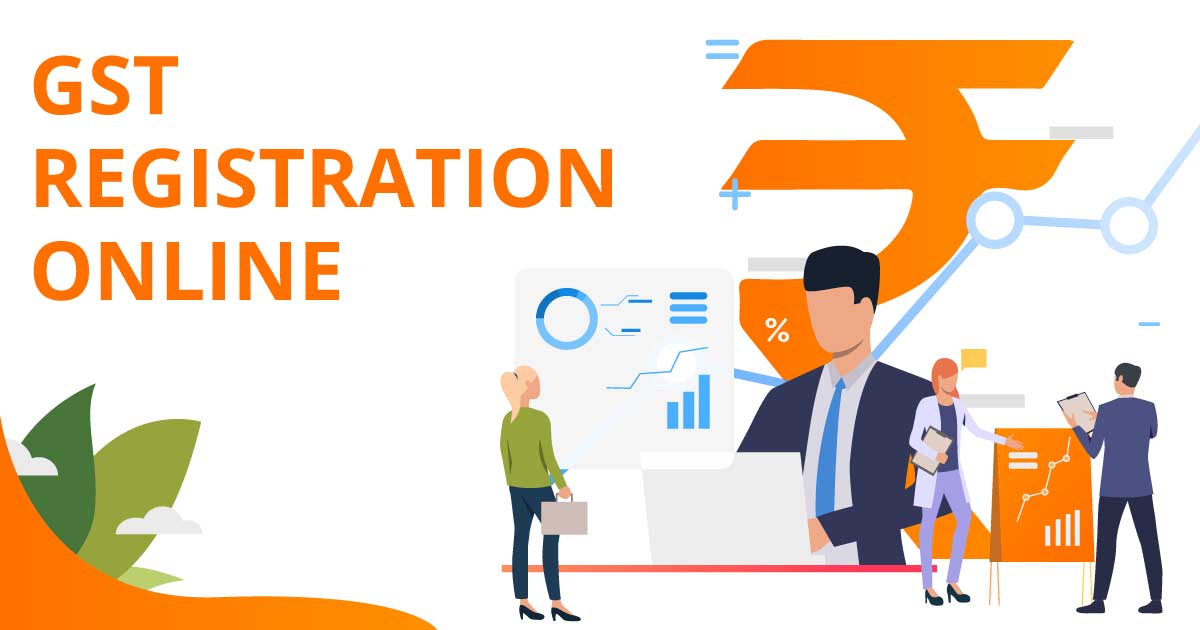Step-by-Step Process for Singapore GST Registration Explained
Step-by-Step Process for Singapore GST Registration Explained
Blog Article
Navigating the Intricacies of GST Registration: Professional Tips and Best Practices for Easier Compliance
From analyzing enrollment demands to utilizing technical tools for streamlined processes, the trip towards smoother GST compliance is multifaceted and nuanced. Remain tuned to uncover necessary strategies and understandings that can assist businesses guide via the intricacies of GST registration with skill and confidence.
Understanding GST Registration Needs

In enhancement to turn over thresholds, businesses participating in interstate sales or giving taxable services may additionally be needed to register for GST, also if their turn over is below the suggested limitation (Singapore GST Registration). Recognizing these requirements and limits is important to prevent penalties and ensure smooth procedures within the legal structure
In addition, companies should collect and prepare the needed documents, such as proof of identification, address, service unification, and checking account information, before starting the GST enrollment procedure. Stopping working to provide accurate information or satisfy the enrollment due dates can result in penalties or various other legal effects. As a result, organizations need to stay notified concerning the particular GST enrollment needs appropriate to their procedures to preserve compliance and prevent possible issues.
Organizing Essential Paperwork
Businesses starting the GST registration process should meticulously put together and arrange the essential documentation required for entry. The essential papers commonly required for GST enrollment consist of proof of company registration or identification, unification and address proofs of the organization proprietors or companions, savings account details, proof of major area of business, and consent kinds. Making certain that these records are conveniently available and arranged can improve the registration process and avoid delays or rejections.
To effectively arrange vital paperwork, companies ought to develop a centralized system for saving and classifying the needed paperwork (Singapore GST Registration). Utilizing digital storage space options can assist maintain very easy accessibility and make certain that papers are securely kept. Furthermore, establishing a list of all essential documents can act as a useful tool to track what has actually been gathered and what is still needed for entry

Leveraging Innovation for Performance
Enhancing functional performance via technological assimilation is extremely important for modern-day companies navigating the complexities of GST registration. One of the vital ways modern technology can help in GST enrollment is through the usage of automated software remedies.
Additionally, modern technology can help with seamless interaction with tax obligation authorities. On the internet portals and communication tools allow organizations to send files, deal with inquiries, and obtain updates in a more effective fashion. This not only quickens the registration process yet likewise helps in preserving clear and trusted communication with the appropriate authorities.
Additionally, cloud-based storage space remedies provide a safe platform for companies to shop and access their monetary data, guaranteeing conformity with GST record-keeping needs. By systematizing data storage and automating processes, organizations can boost their overall efficiency and accuracy in GST registration treatments.
Proactive Compliance Surveillance

To make sure reliable aggressive conformity surveillance, organizations ought to develop durable inner Click Here controls, conduct periodic audits, and utilize automation devices for real-time tracking of GST purchases. Regular training sessions for employees on GST compliance requirements can likewise aid in producing a society of compliance within the company. Furthermore, involving with tax obligation specialists or professionals can give useful insights and support on browsing intricate GST laws.
Engaging With Expert Experts
Engaging experienced tax obligation specialists can significantly strengthen a firm's understanding and compliance with complex GST laws. Specialist specialists bring a riches of expertise and experience to the table, assisting companies browse the intricacies of GST registration effortlessly. By leveraging their experience, firms can guarantee accurate filings, minimize the risk of errors, and stay up-to-date with the most recent governing adjustments.
When engaging with professional consultants, it is important to pick specialists with a strong record in GST compliance (Singapore GST Registration). Search for specialists who have a deep understanding of the relevant laws and regulations, as well as experience dealing with companies in your sector. Efficient interaction is crucial in this collaboration, so make certain to plainly specify your assumptions and establish regular touchpoints to discuss progress and deal with any type of concerns
Furthermore, professional specialists can provide useful understandings and advice on optimizing your tax obligation approach, identifying potential cost-saving opportunities, and streamlining your conformity procedures. On the whole, purchasing expert working as a consultant solutions can go a long way in ensuring smoother GST compliance and avoiding pricey errors.
Final Thought
In final thought, navigating the complexities of GST enrollment needs a detailed understanding of the needs, company of crucial documents, leveraging innovation for efficiency, aggressive conformity monitoring, and involvement with expert professionals. By complying with these finest methods, companies can ensure smoother conformity with GST policies and stay clear of possible charges or penalties. It is important to stay educated, positive, and thorough in managing GST registration to maintain compliance and promote economic integrity.
To make certain compliance with tax obligation policies, businesses need to thoroughly recognize the elaborate needs for GST enrollment. Goods and Solutions Tax Obligation (GST) is a value-added tax imposed on most items and services in a nation, making it vital for organizations to sign up for a fantastic read GST to prevent lawful effects.Furthermore, businesses must gather and prepare the essential documentation, such as proof of identification, address, business unification, and financial institution account details, before starting the GST registration process. Businesses ought to remain educated regarding the particular GST enrollment needs applicable to Web Site their operations to preserve conformity and avoid potential issues.
The essential papers typically required for GST enrollment consist of evidence of organization enrollment or identification, consolidation and address proofs of the business owners or partners, financial institution account information, evidence of major area of business, and authorization forms.
Report this page